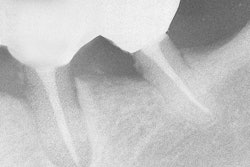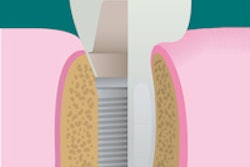
ANAHEIM, CA - A panel of experts gathered at the California Dental Association's CDA Presents 2015 meeting to debate the merits and drawbacks of implant and endodontic procedures. However, the six-person panel hardly debated, and the conversation instead gave way to a consensus -- general dentists should determine which procedure is best on a patient-by-patient basis.
"Both [implants and endodontics] are very successful, and we as dentists should be proud of that," said endodontist Alex Fleury, DMD. "I don't think it's about which one is best. I think it's about which one is the right one for the patient."
“I don't think it's about which one is best. I think it's about which one is the right one for the patient.”
Throughout the panel discussion, the dentists made points for and against implants and endodontics, but everyone reinforced that it is important to look at patients on a case-by-case basis. Most panelists also agreed it is prudent to save the tooth when reasonable.
General dentist Frank T. Curry, DDS, moderated the panel, which consisted of two prosthodontists, a dentist practicing implantology, an oral and maxillofacial surgeon, and an endodontist. Each representative spoke and answered questions on their area of expertise.
Save the tooth (within reason)
The "pro-endo" group consisted of Dr. Fleury and oral and maxillofacial surgeon Hooman Zarrinkelk, DDS. Both agreed that when a tooth can be saved, it should be saved because native teeth have several advantages over implants, including a stronger biological width and being part of the body's natural response system.
"Ladies and gentleman, I'm stipulating to you -- please do endodontics," Dr. Zarrinkelk said.
Since implants have become increasingly popular and accepted, Dr. Fleury has noticed a concerning trend of more patients and dentists opting for implants over endodontics, even when the native tooth can be saved. He said that this is even happening at the Baylor College of Dentistry in Dallas, where he is an assistant professor in the department of endodontics.
"Perfectly savable teeth are being pulled. ... This is happening at Baylor right now," he said. "I don't think that's the way to go."
Two of the three "pro-implant" panelists agreed with Drs. Fleury and Zarrinkelk, saying that teeth should be saved within reason. Likewise, the endodontic group realized that not every tooth can and should be saved, sometimes to the dismay of general dentists and patients. In fact, Dr. Fleury was once called a "wimp" by a patient because he didn't think it was worth doing a root canal in her case.
When to place an implant
A key factor in deciding not to save a tooth is if there is drastic inflammation around the area, which can lead to significant oral and systemic health problems.
"When we look at the question between endo and implants, the question we have to ask is, 'Which one can be maintained relatively inflammation-free?' " said Timothy Donley, DDS, who practices implantology and periodontics. "Yes, we've saved the teeth, but the fact that there's been chronic inflammation in this area for 15 years -- is the patient better off?"
The pro-implant panelists also stressed the importance of considering treatments on a tooth-by-tooth basis for each patient, as the biology of the mouth changes when implants are placed. In some cases, not all teeth may need an implant, which are generally more successful when placed between virgin teeth.
"When we have two implants side by side, it's a challenge," said prosthodontist Saj Jivraj, DDS, BDS. "Evaluate that situation very carefully."
To decide between implants and endodontics, Dr. Jivraj urged general dentists to look at a patient's smile line, gingival contours, ferrule, tooth structure, and posterior support. He also encouraged dentists to ask plenty of questions before deciding on implants, such as the following:
- Is periodontal therapy a reasonable option?
- Will endodontic therapy be successful? Can the tooth be effectively restored?
- Will this tooth be an abutment for fixed partial dentures or a single-tooth restoration?
"Sometimes we need to step back and make a decision potentially not to place implants," said prosthodontist Bryan Harris, DMD. "We also want to pick the right patient."
Once general dentists decide to move forward with implants after considering all options and their patient's preference, then they should feel confident in their decision, according the panelists. However, when in doubt, there is no harm in a patient getting an expert's second opinion.
"At the end of the day ... I believe teams outperform individuals all day long," Dr. Harris said as he concluded his arguments and the panel discussion. "I rely on my prosthodontist, my endodontist, and I don't make that decision on my own."



















